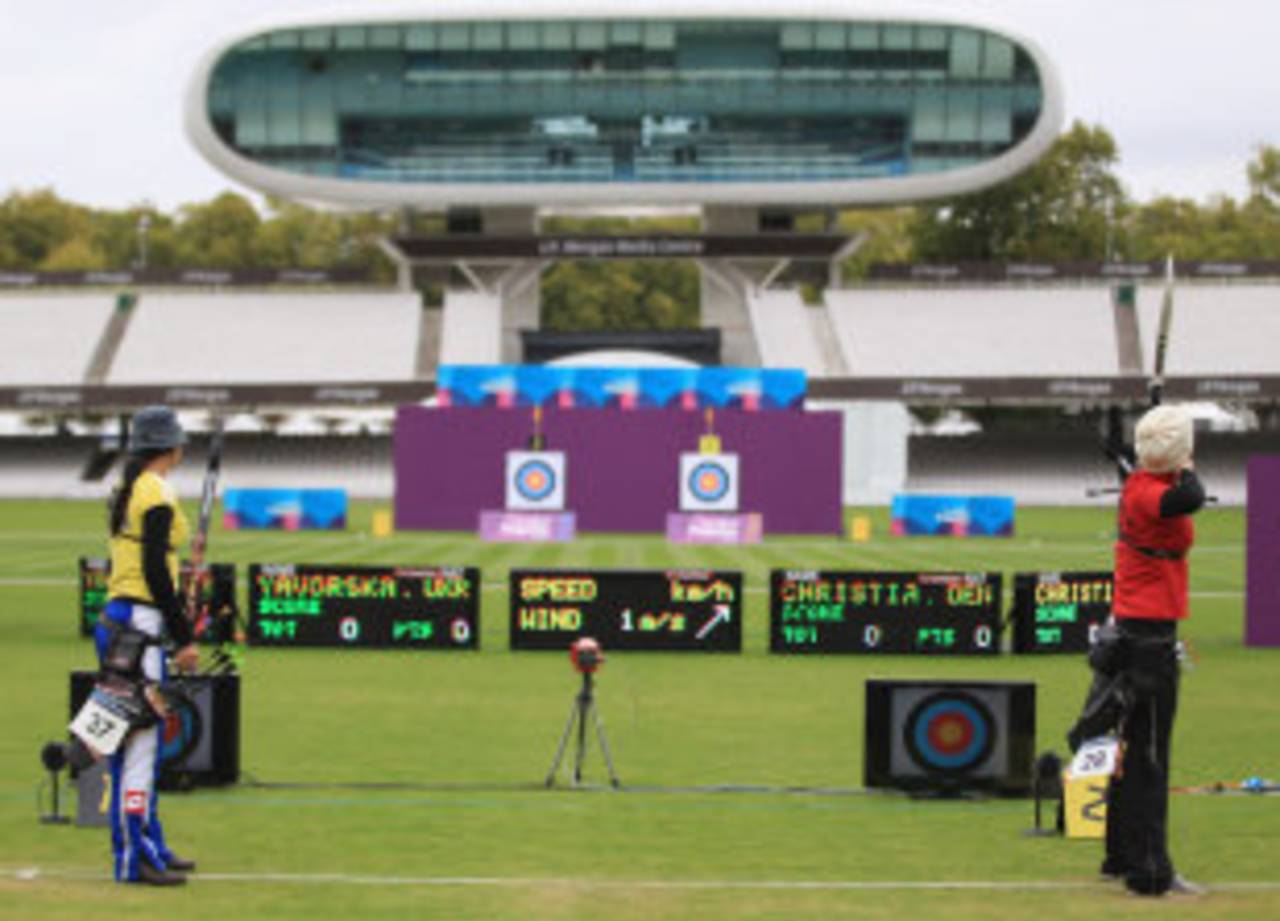Behind the scenes at Lord's
As an ordinary person you don't get to see the workings of the home of cricket. Not unless you sign up as an archery volunteer for the Olympics

Archers practising at Lord's • Getty Images
I hurriedly began reading up on archery. The target is the width of an extra-large cricket shirt and you have to hit it from a distance of three-and-a-half pitches. The diameter of the bull's-eye is less than half a bail's length. Accuracy of the Glenn McGrath variety is required
Liam Herringshaw is a medium-paced palaeontologist who moved to Newfoundland from the UK to improve his chances of opening the bowling